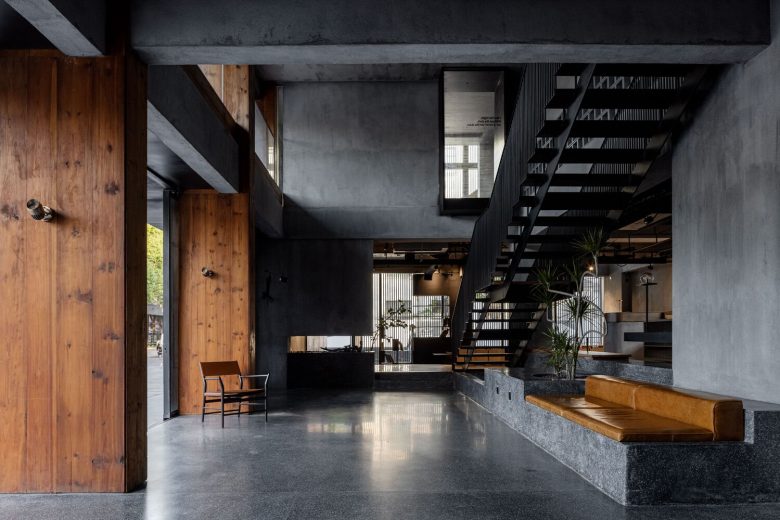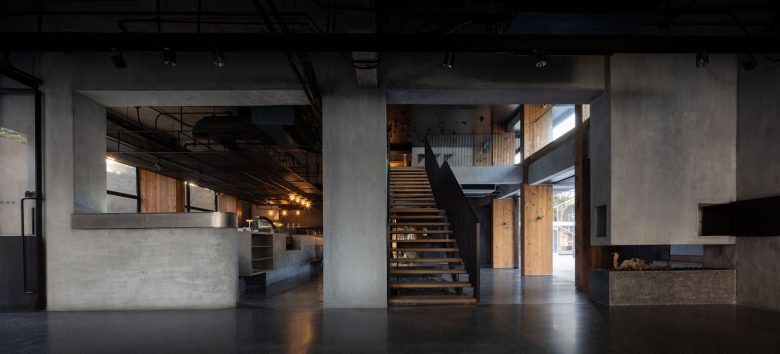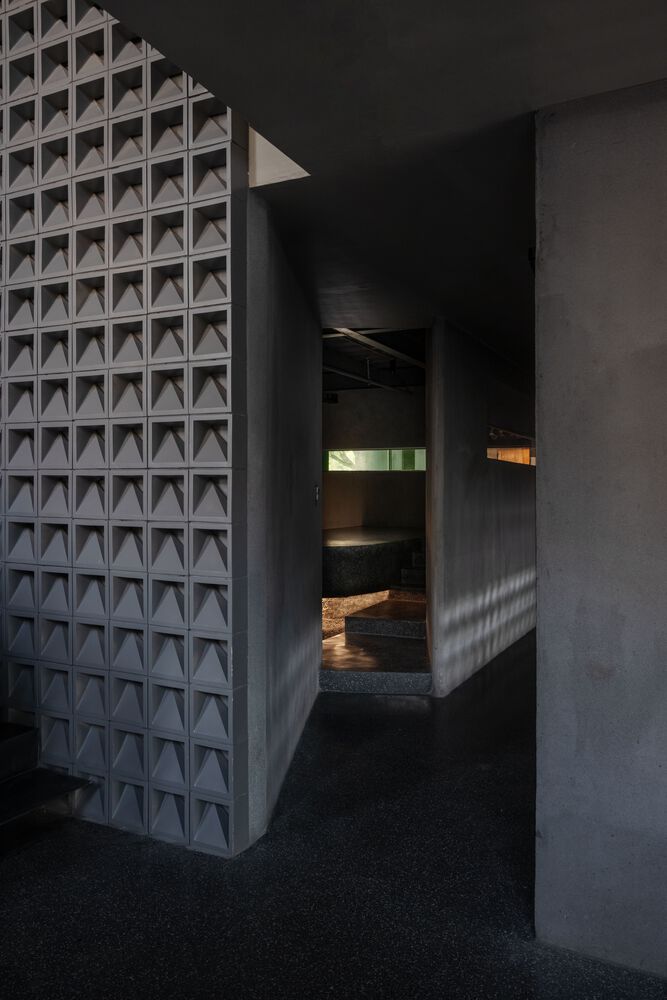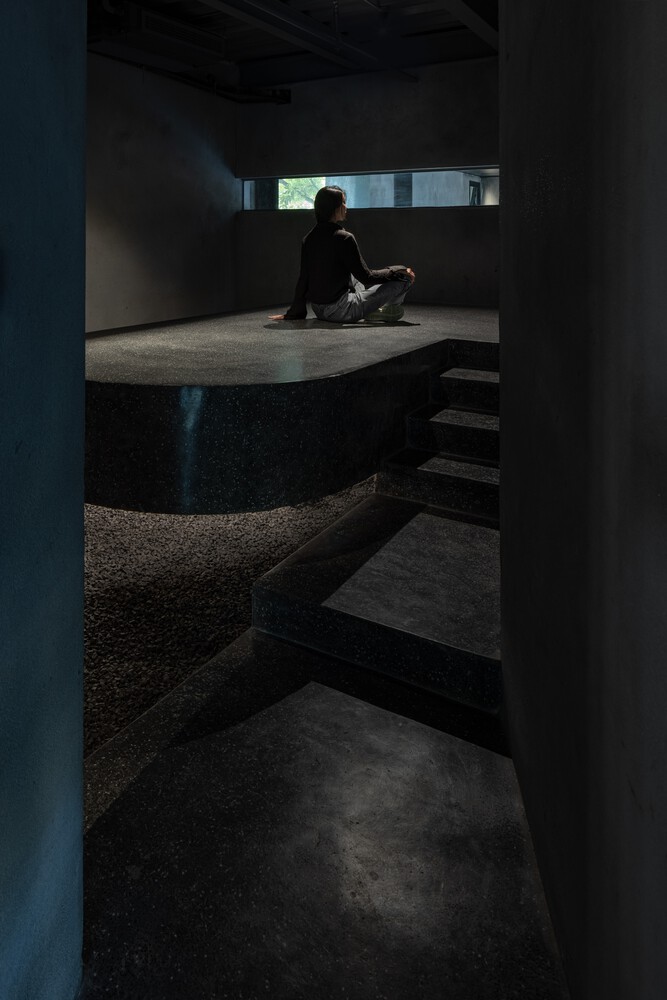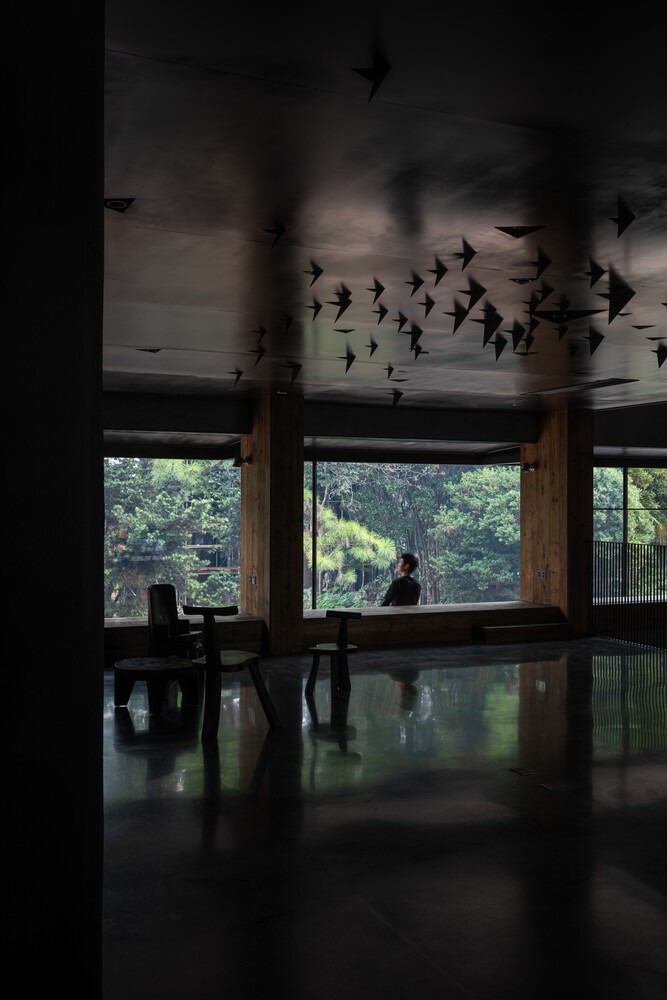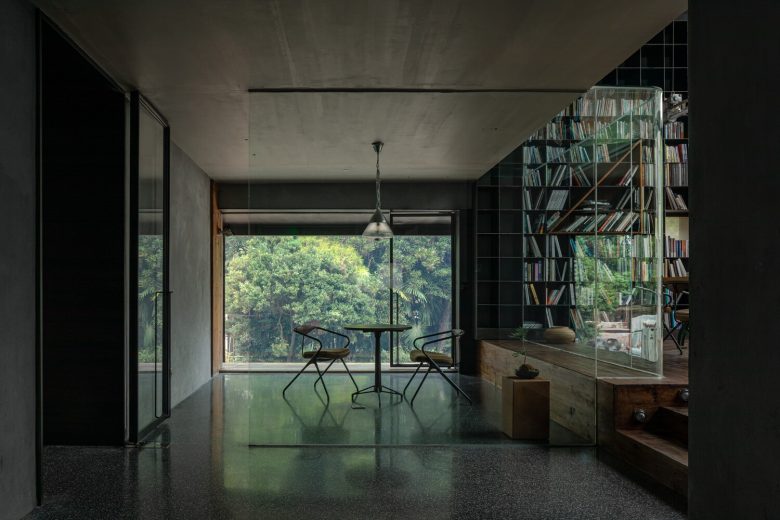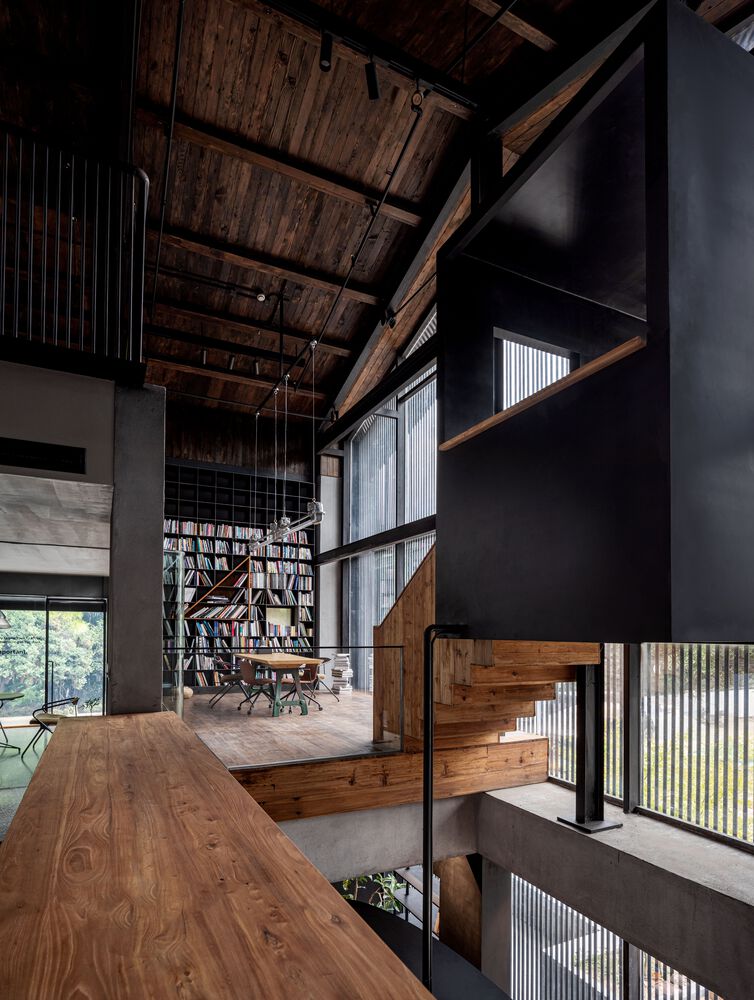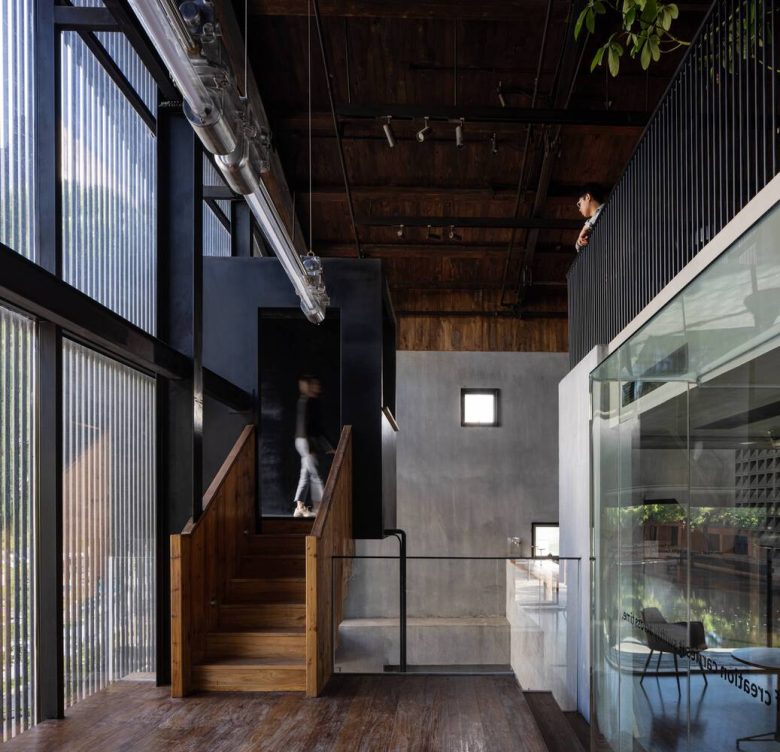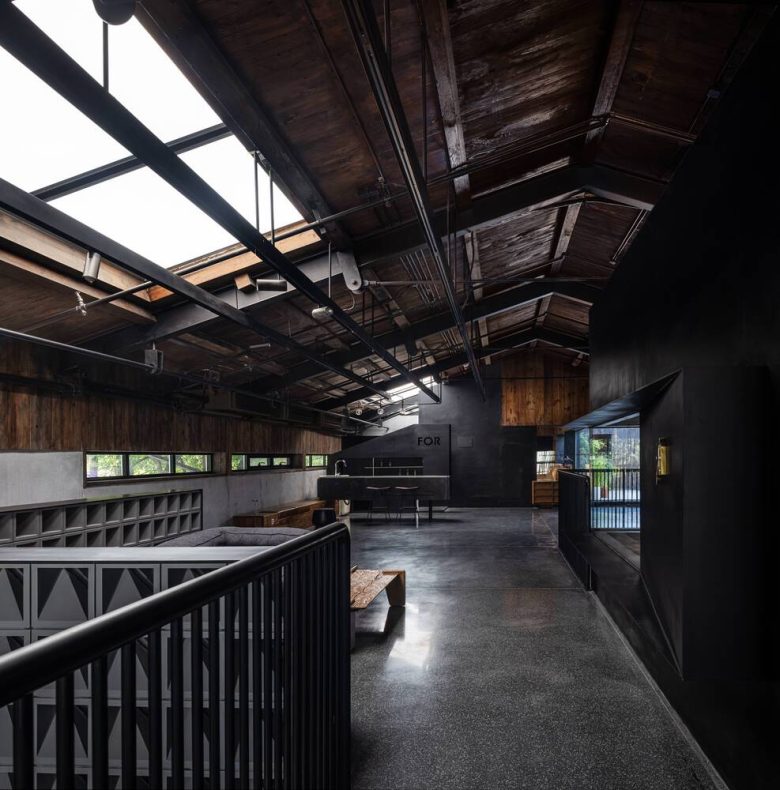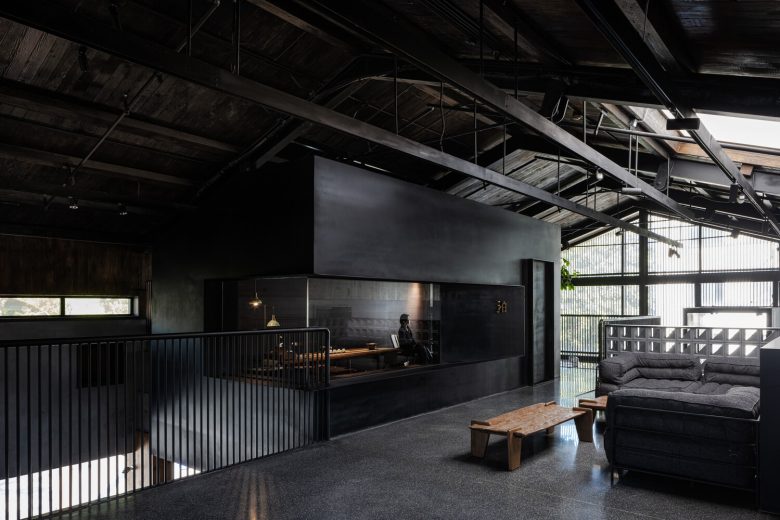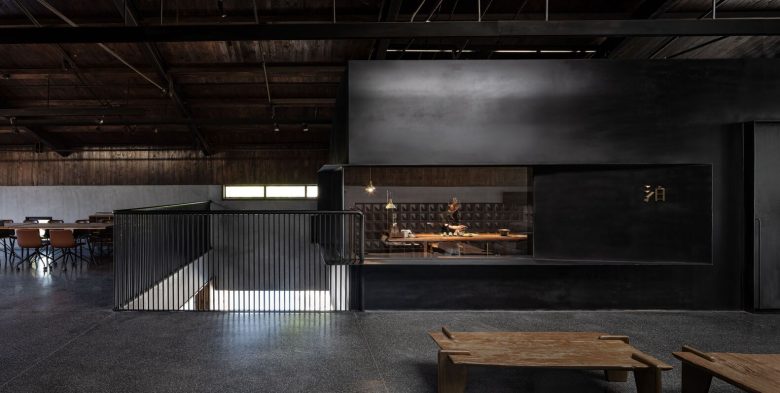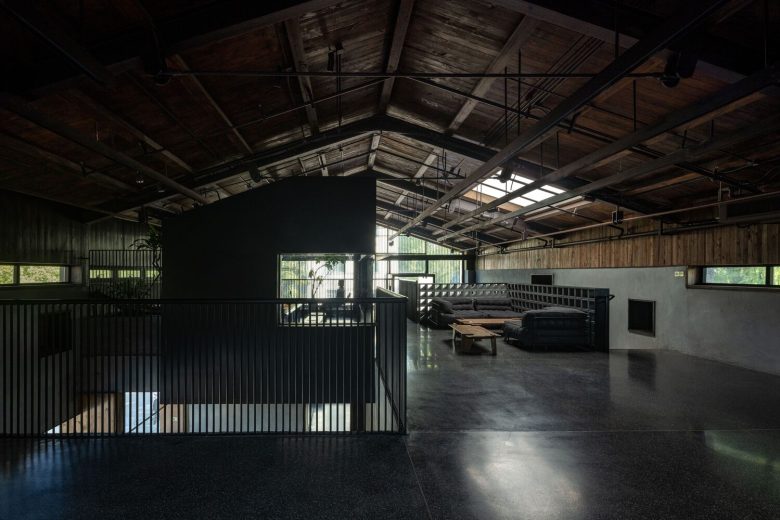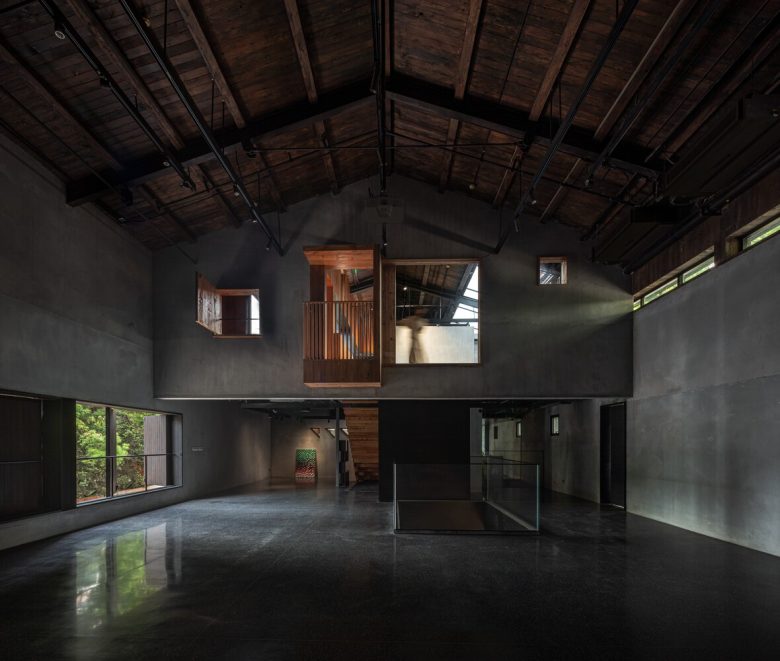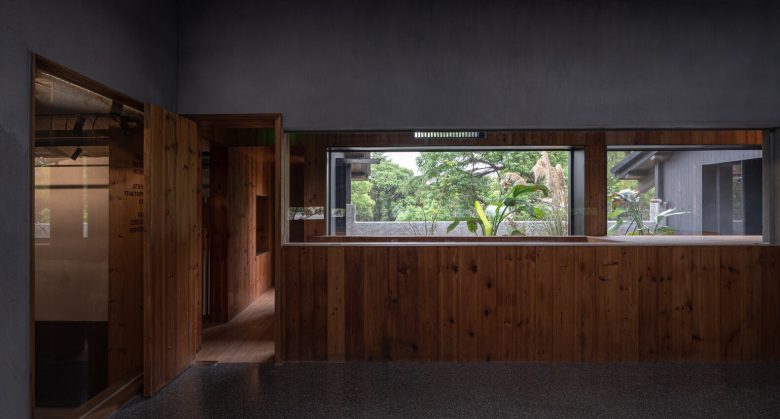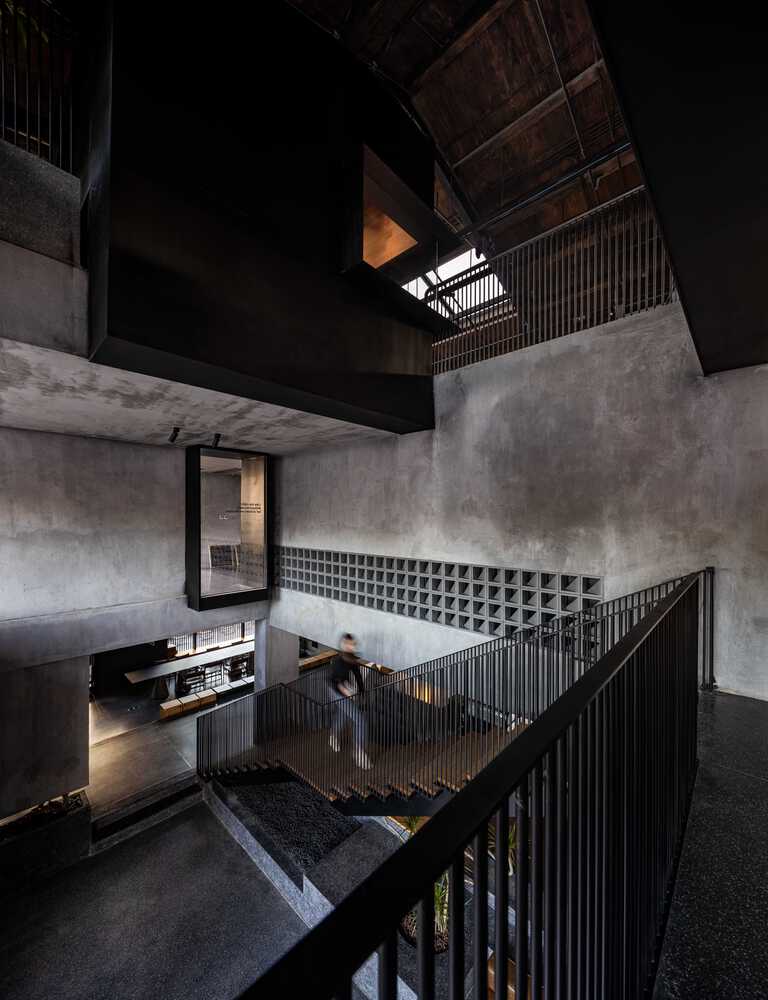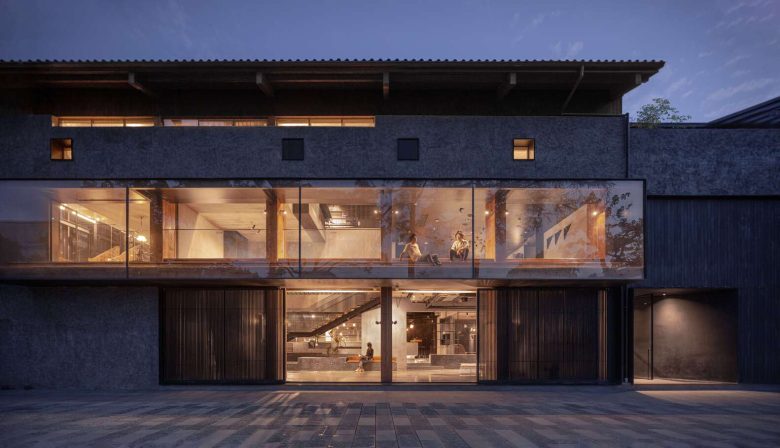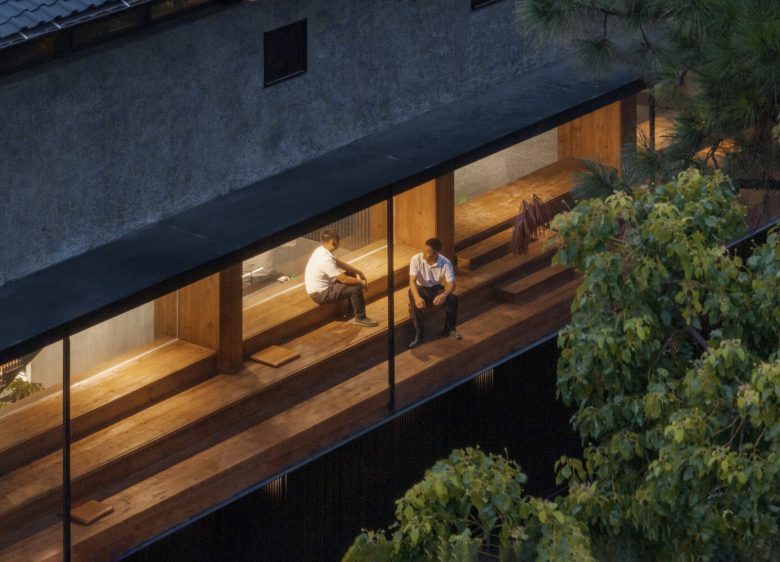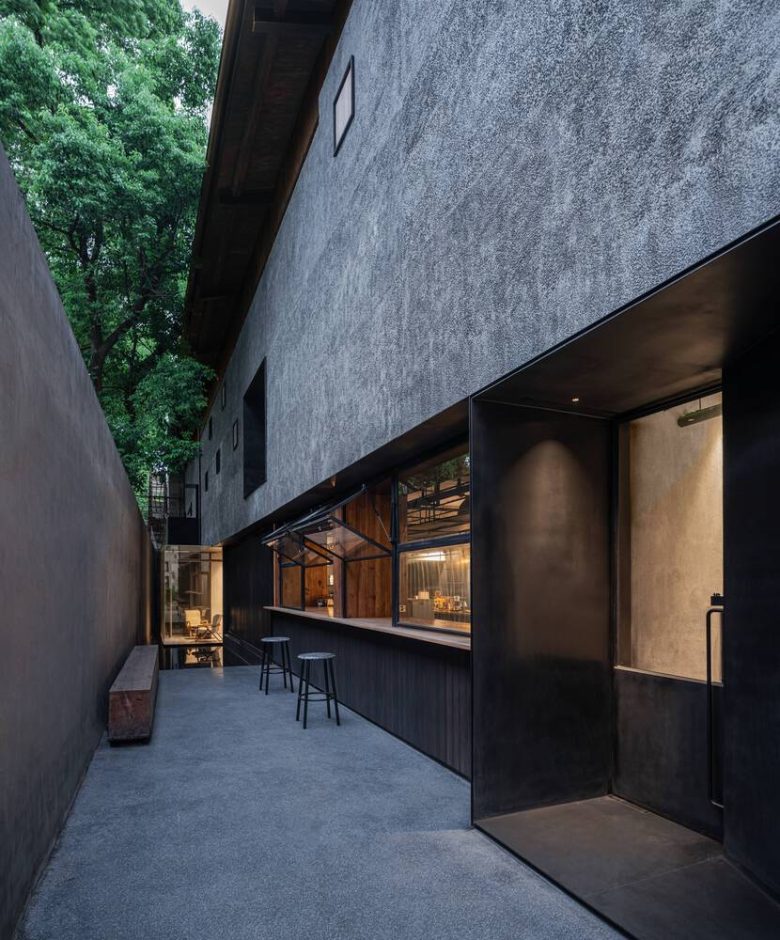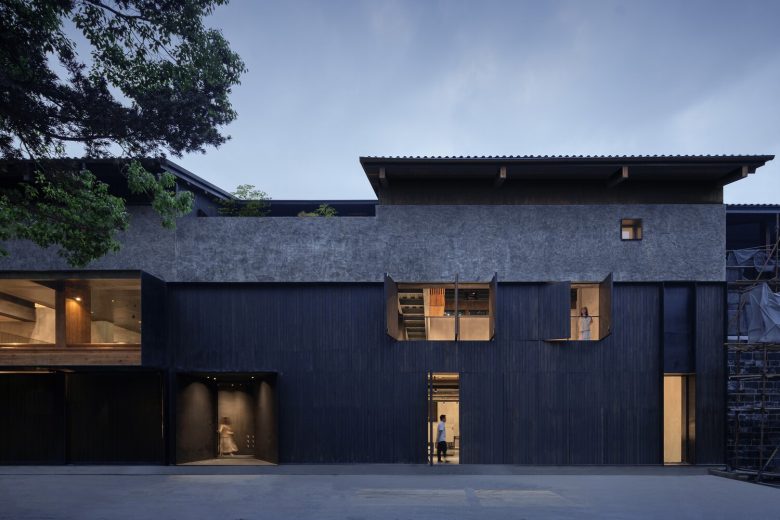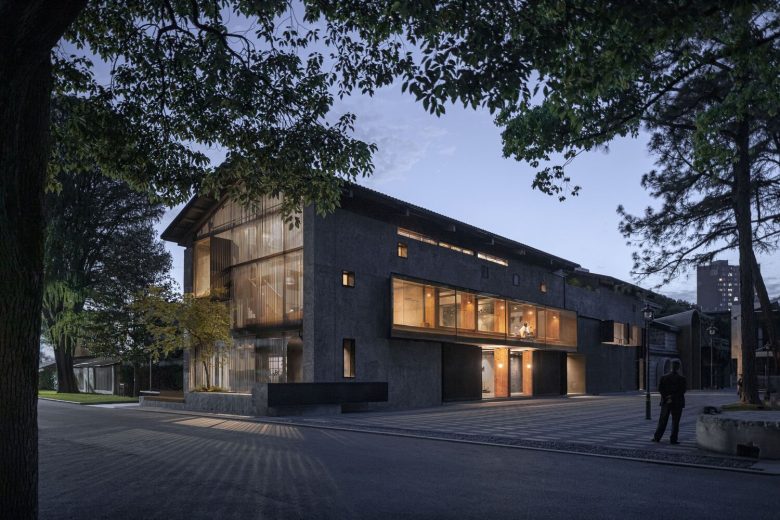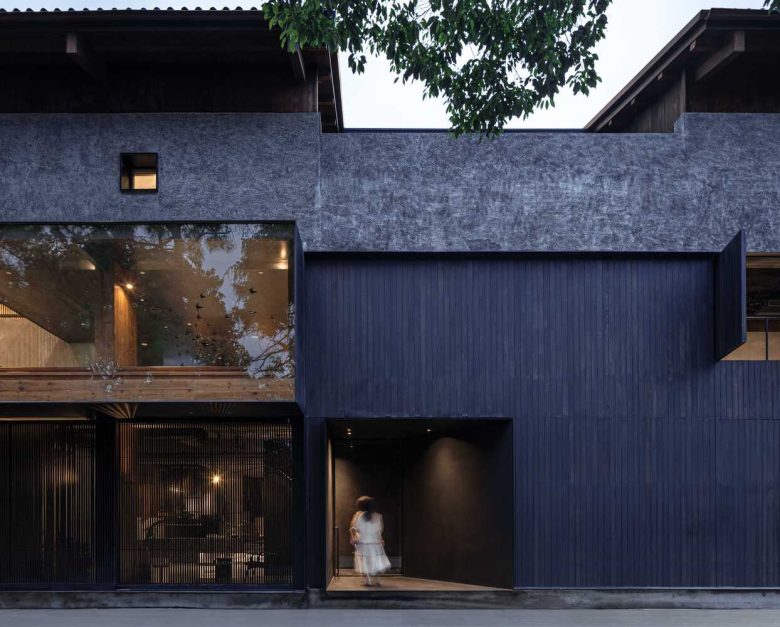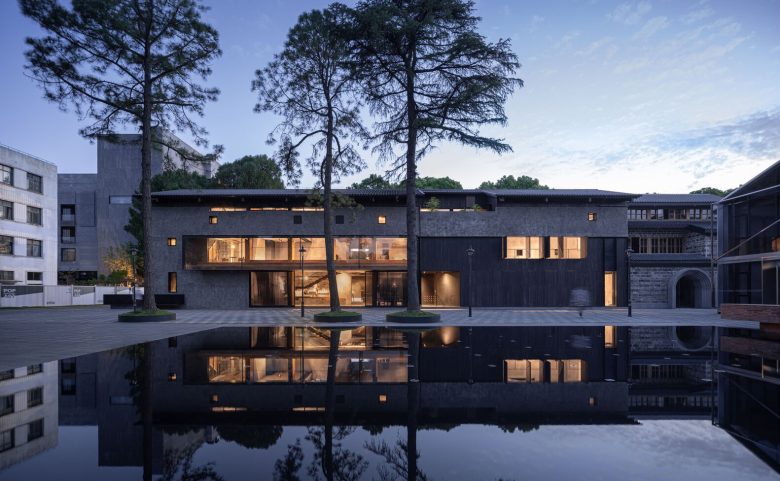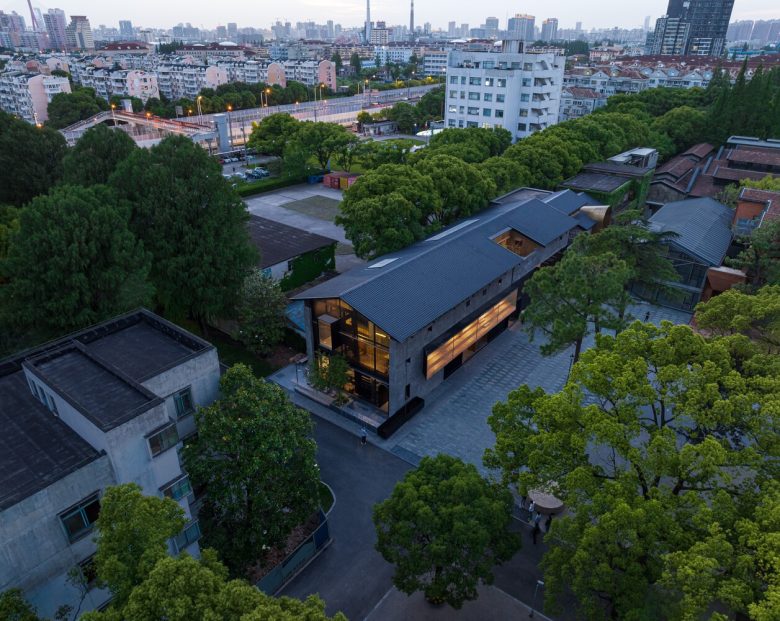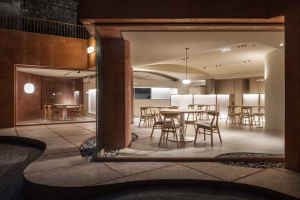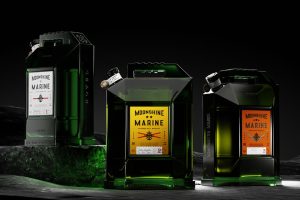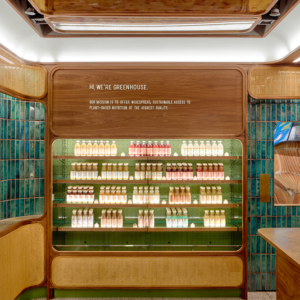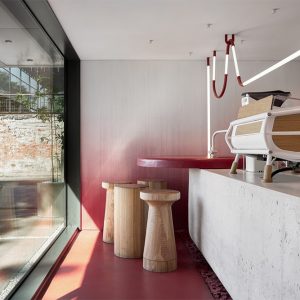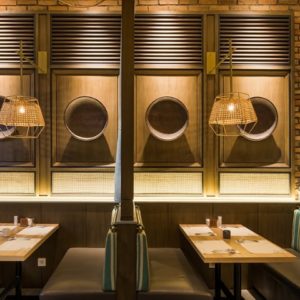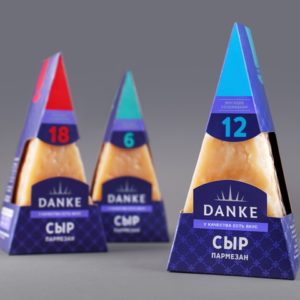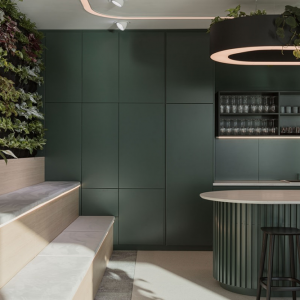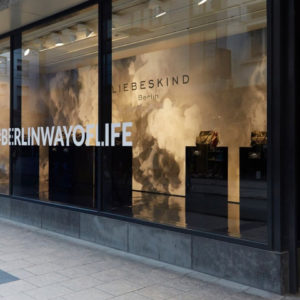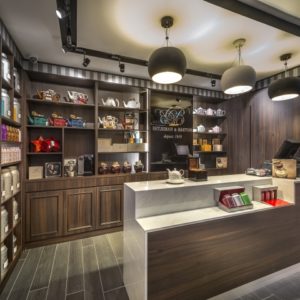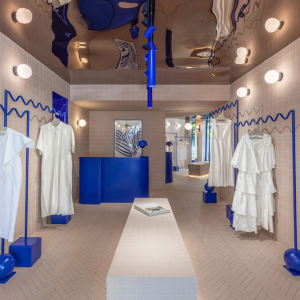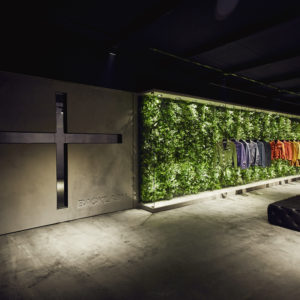
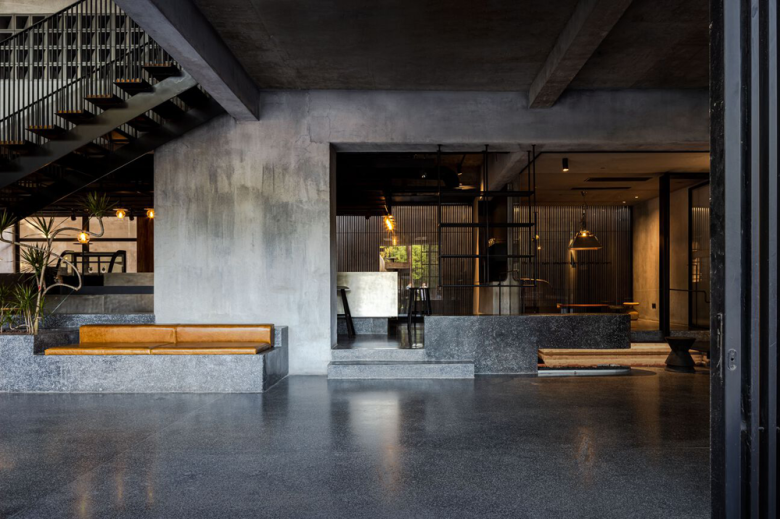
BANCANG is located in EKA-Tianwu Park in Jinqiao District, Pudong New Area, Shanghai. The site was originally the warehouse of CSSC Marine Instrument Co., Ltd. in Shanghai – Warehouse 445 in the 60s. The overall planning and renovation design of the area was conducted as commissioned by the owner. As a pioneer renovation project in the park, it should not only have commercial reception and exhibition functions but also reflect the prospect of the park in the future. We respect the historical development and put the current sustainable development concept into it, integrating the old and the new parts to arouse the old buildings.
BANCANG retains the original form of the building and simplifies its appearance. The original south-facing wall is removed and replaced by a glass metal grille, allowing the interior space to be free and open. The east-facing side is the main facade and it faces the open landscape pool. A sixteen-metre-long dormer window was cantilevered and angled out of the left main elevation of the second floor, which breaks the balance of the building. The original windows on the ground floor are replaced by four-block grille doors, which can be opened to both sides and blur the boundary between indoors and outdoors. The right side of the main facade is covered with a large piece of carbonized wood, with hidden doors and windows, showing a variety of forms and facilitating the owner’s subsequent functional composite and use.
The roof of the middle section is partially opened to present the roof terrace naturally, providing light and landscape for the moving grey space in the internal corridor. We are committed to practicing the relationship between architecture, humans, and nature, which is also our original intention of renovating the old building.
Washed stones composed of shells beach stones, and black carbonized wood, form the main texture of the exterior, which not only retains the historical features of Shanghai-style cities but also reflects the serenity of BANCANG and the essence of oriental minimalist aesthetics.
The floors of the old building are very closed to each other inside, so during the process of updating and renovating BANCANG, the original wall texture of sand and cement is preserved and we also blend the old with the new. Parts of the floor are removed to connect up and down space freely. The staggered floor design creates different perspectives and rich scale space, allowing people to look out, read, think, and whisper ……
The ground floor of the renovated BANCANG is set up with a cafe, VIP reception space, and a sunken business activity area. The open design is movement-oriented, emphasizing communication and dialogue. The second floor is arranged with a small library, a sand table display area, and a meditation area, with a semi-enclosed design, which focuses on static and emphasizes reading and meditation. The combination of motion and static on the first and second floors creates various experience spaces.
The original gypsum board ceiling on the third floor is demolished, the exposed wooden beam structure is retained, and the newly made metal components and black metal-wrapped BOX tea space are placed in the atrium on the third floor, where the industrial-style tea bar and retro open office area are distributed. The new and the old collide and intertwine fiercely here, presenting a post-modern deconstructionist style.
A small space of cultural property is retained in a limited space by rearranging it. Without too much rendering. It is presented in the form of a small art gallery to show respect to the old building. Awakening and utilization is also a way of renovation design.
Architects: Benzhe Design
Principle Architect: Jiang Huajian
Design Team: Yao Ruigen, Lin Tong, Zhao Guijun
Photographs: Shengliang Su
